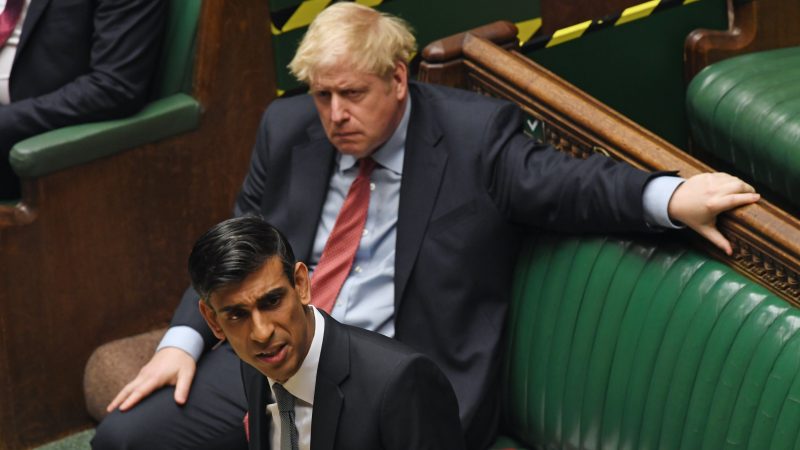
Do people experience fraud? Is it even real, or are the 4.6 million people reporting as victims each year simply imagining it? Keir Starmer sought some answers from Boris Johnson this afternoon, asking whether Kwasi Kwarteng was right to say that fraud is “not something people experience in their day to day lives”. The Labour leader then moved on to take aim at the government’s wider record on fraud including a “crime gang in Manchester nicking cars around the world and shipping them around the world, all financed by Covid loans from the taxpayer”. He reminded MPs that the Prime Minister’s anti-fraud minister resigned earlier this month because he had been unable to get the government to act against fraud in the pandemic, quipping: “It’s almost as if he’s been completely distracted for weeks.”
But the object of scrutiny today was not Johnson. The Labour leader took aim at Rishi Sunak: while the government is writing off £4.3bn of taxpayer money on fraudulent Covid loans, he said, the Chancellor is “insulting people’s intelligence” with his energy bills “con”. Unveiled last week to “take the sting” out of rising prices, households will have £200 knocked of their bills in October. But bill payers, and indeed people who do not even benefit from the scheme, will have to repay this in mandatory £40 payments for the following five years. In a valiant stab at newspeak, Sunak has dubbed this a “discount”. Starmer instead described the controversial scheme as a “buy-now-pay-later scheme, a dodgy loan not a proper plan”.
And the Labour leader used today to make clear that the mastermind behind this Orwellian offer to the public is Sunak. The Labour leader told parliament he was “always worried the Prime Minister wasn’t one for reading terms and conditions” and argued Johnson “didn’t understand what the Chancellor signed him up to”, describing the duo as “the loan shark Chancellor and his unwitting sidekick”. Johnson is the bumbling Prime Minister, the figurehead behind which the Chancellor stands. This approach has two benefits: 1) emphasising the Prime Minister’s well-known capacity for acting the fool that, juxtaposed against a serious cost-of-living crisis, suddenly does not seem so charming; and 2) pinning Tory failure to Sunak. Labour knows that, should the Prime Minister be brought down by his mutinous Conservative backbenchers, the Chancellor will be a leading hopeful for the top job. Starmer is laying the groundwork to take on the successor.




More from LabourList
MPs, union leaders and organisations react to ‘bruising’ Gorton and Denton result
A gory night for Labour
‘SEND reforms are a crucial test of the opportunity mission’